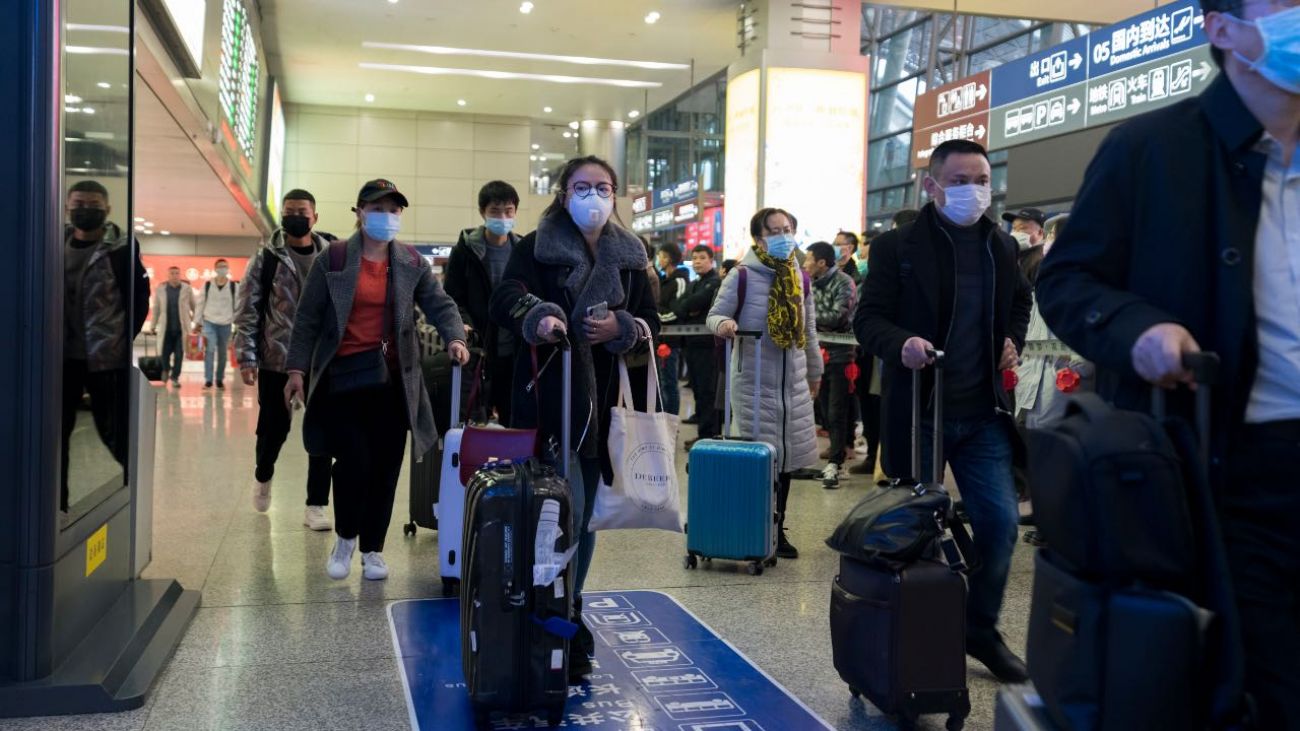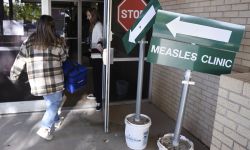As U.S. braces for coronavirus, Detroit hospital sets up 5 patient rooms

A top U.S. health official Tuesday warned that the deadly coronavirus’s spread to the United States is all but inevitable, a contingency Michigan health and medical officials say they are preparing to confront.
As new cases emerge in Kuwait, Afghanistan, Bahrain, Iraq, Oman, Italy and South Korea, assurances fade that the virus first detected in Wuhan, China in December will be contained, Nancy Messonnier, director of CDC’s National Center for Immunization and Respiratory Diseases, told reporters. She urged health providers, schools and others to prepare for large-scale disruptions.
“It’s not a question of if this will happen but when this will happen and how many people in this country will have severe illnesses," Messonnier said. “Disruption to everyday life might be severe."
The World Health Organization reported Tuesday that cases worldwide topped 80,000, and urged health care workers and providers to double-check preparations against the training guidelines WHO now offers in a one-hour, online presentation.
Against this international backdrop, Michigan’s hospitals and public health officials — already in the middle of widespread flu — say they are planning to confront the virus, officially known as COVID-19.
Related articles:
- How to prepare for coronavirus in Michigan. Step 1: Breathe
- As Michigan braces for coronavirus, H1N1 quietly makes a comeback
- Coronavirus Tracker: What Michigan needs to know now
- 5th Michigan person being tested for coronavirus; had traveled to China
- The first line of defense against coronavirus: Try soap, not a mask
[Subcribe to our Health Watch newsletter for periodic
coronavirus updates and more Michigan health news]

Earlier this month, MDHHS activated the Community Health Emergency Coordination Center to support local and state response to the outbreak. The Michigan Health and Hospital Association has disseminated resources from Michigan Department of Health and Human Services, the American Hospital Association and the CDC to members in past weeks, spokesman John Karasinski said.
The spread of coronavirus beyond China in recent days means its arrival in Michigan is more likely than not, said Dr. Rudolf Valentini, chief medical officer of Detroit Medical Center and Children’s Hospital of Michigan.
“About three weeks ago I said ‘You know, I don't think we need to get that worried. I think we've got this managed at the borders’,” he said.
To be safe, in early February the DMC’s Receiving Hospital set aside five specialized “negative pressure rooms” for patients possibly infected with coronavirus in its Special Pathogen Unit. The rooms bypass the emergency department and other parts of the hospitals so that interaction with others is minimal.
The five rooms were set aside for patients suffering coronavirus symptoms with a travel history to China or who had been in contact with someone with a confirmed coronavirus infection, Valentini said.
So the rooms remain empty “and ready,” while doctors in the emergency room and elsewhere are continuing to see a high number of patients with other concerns — notably, the seasonal flu, Valentini said.
In fact, as the CDC issued its most urgent coronavirus warning to date, the latest flu surveillance data suggest that just under 1 in 25 patient visits in Michigan during the week ended Feb. 15 was linked to the flu or flu-like symptoms.
Among the 105 pediatric deaths this flu season across the nation, two were Michigan children. And in the five counties that are part of a state surveillance project — Clinton, Eaton, Genesee, Ingham and Washtenaw — 565 people have been hospitalized with flu or flu-like symptoms since flu season began Oct. 1.
Some public health experts, including Dr. Emily Toth Martin at the University of Michigan, have encouraged Michiganders to get flu shots not only for individual protection against the flu, but also to keep emergency rooms and doctors’ offices ready to address COVID-19 should it become widespread.

Martin is an associate professor of epidemiology and co-director of the Michigan Influenza Center at U-M’s School of Public Health. The center’s 1,600-square-foot lab helps the CDC track flu strains each year with a specific focus on determining the effectiveness of each year’s flu vaccine.
Martin noted that this season’s flu vaccine is about 45 percent effective. It’s most effective for children, according to a recent release by the CDC.
“If we can cut in half the number of people who have the flu at a time when we’re trying to prepare for these other things, this would be a big help on the medical system,” she said.
Sue Kim, an epidemiologist specializing in respiratory diseases at the state health department, noted that flu season is far from over, so getting a flu vaccine now can still protect. That’s especially true if cases suddenly peak again, she said: “The flu season is so unpredictable.”
All this makes the early planning for coronavirus all the more important, DMC’s Valentini said.
“When more and more every day [about coronavirus] changes,” he said, “and you hear more and more that it's spreading around, it’s a little disconcerting in terms of our ability to manage it.”
See what new members are saying about why they donated to Bridge Michigan:
- “In order for this information to be accurate and unbiased it must be underwritten by its readers, not by special interests.” - Larry S.
- “Not many other media sources report on the topics Bridge does.” - Susan B.
- “Your journalism is outstanding and rare these days.” - Mark S.
If you want to ensure the future of nonpartisan, nonprofit Michigan journalism, please become a member today. You, too, will be asked why you donated and maybe we'll feature your quote next time!








